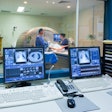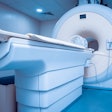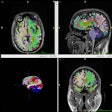Dear MRI Insider,
The International Society for Magnetic Resonance in Medicine (ISMRM) held its annual meeting in Toronto earlier this month, and the conference once again provided several days of fascinating scientific papers and posters from around the world.
One of the more novel studies came from Arkansas Children's Hospital Research Institute, where researchers found that mothers who are obese but otherwise healthy may be putting their newborns at risk of delayed brain development.
Diffusion-tensor MRI (DTI-MRI) scans of infants at 2 weeks of age showed reduced white-matter integrity in regions of the brain associated with cognitive function. The findings could have a big effect on the general public's awareness of the issue of maternal obesity during pregnancy, the researchers believe. Learn more in our Insider Exclusive, available to you first as a subscriber.
ISMRM 2015 also offered a study on a new method of dynamic contrast-enhanced MRI in patients undergoing treatment for breast cancer. After only one round of neoadjuvant chemotherapy, changes in several quantitative biomarkers detected by the technique provided "excellent predictions of eventual pathologic complete response," according to researchers from Oregon Health and Science University.
Also at the meeting, Canadian researchers presented evidence of a biomarker that could help differentiate between normal aging and early cognitive decline. Despite a relatively small cohort of patients, they believe the study offers promising evidence that an MRI technique called quantitative susceptibility mapping may show a correlation between the level of iron in certain brain regions and poor cognitive performance.
Finally, another group discussed how DTI-MRI could demonstrate the side effects of chemotherapy in kids treated for a type of glioma. By measuring fractional anisotropy in children with neurofibromatosis type 1, the researchers hope to gain a better understanding of the potentially harmful side effects of chemotherapy in order to balance its benefits versus risks.
In other news, DTI-MRI was also recently used to detect distinct injury patterns in the brains of patients with concussion-related depression or anxiety. The findings could provide insight into how abnormalities occur after trauma and how treatment for nontrauma patients with neuropsychological symptoms might benefit some concussion patients, according to the researchers from Pittsburgh.
Also, children who experience a sports-related concussion could get a better idea of whether they should return to action thanks to MRI. When researchers from Manitoba performed a retrospective review of patients 5 to 19 years old, they found that MRI detected signs of hemorrhagic and nonhemorrhagic traumatic lesions that prompted physicians to advise that patients not return to contact sports, highlighting the need to consider MRI in certain cases.
Be sure to stay in touch with the MRI Community as we report on more studies from ISMRM 2015 and cover more groundbreaking research and its contribution to clinical practice.


.fFmgij6Hin.png?auto=compress%2Cformat&fit=crop&h=100&q=70&w=100)
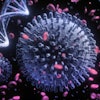

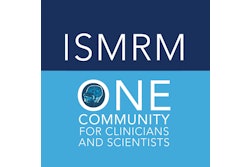
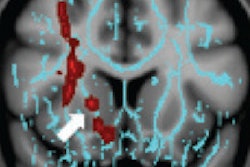
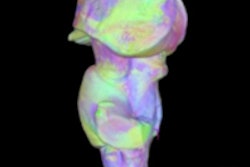
.fFmgij6Hin.png?auto=compress%2Cformat&fit=crop&h=167&q=70&w=250)








